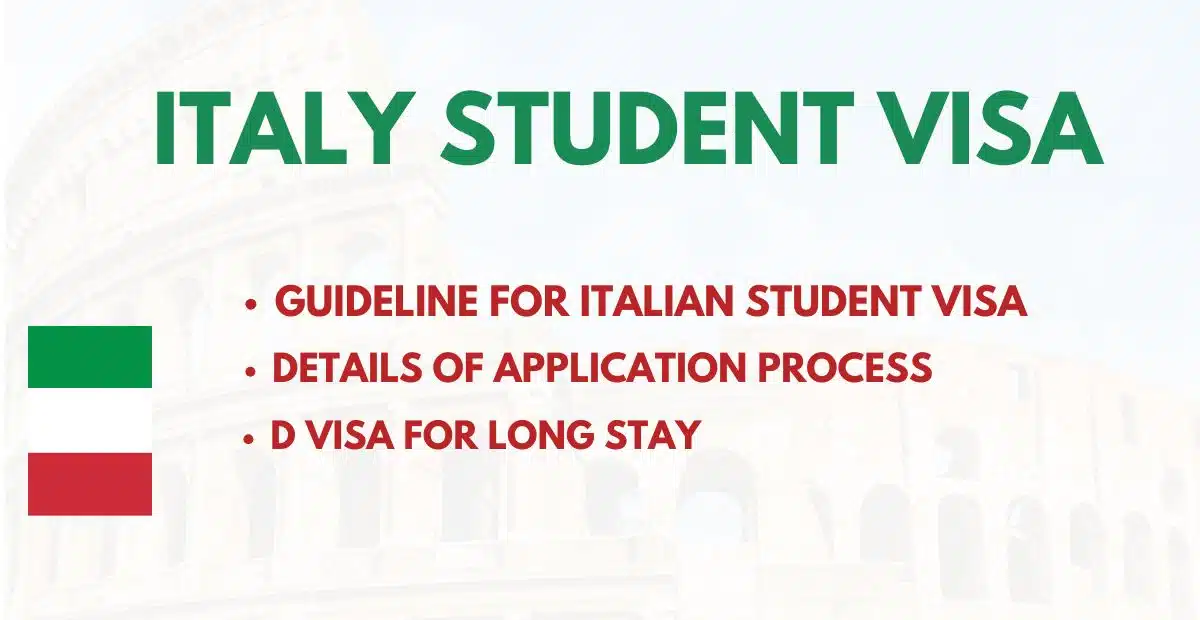If you’re looking for affordable education, consider applying for a German Student Visa. Over the years, Germany has attracted many talented students from across the globe to pursue studies at its renowned universities. With over 300 educational institutions offering more than 15,000 diverse study programs, the country appeals to a significant number of international students annually. If you plan to study in Germany and you’re from outside Europe, you will need a visa. We understand that many students are anxious about this process due to the various bureaucratic requirements. Therefore, we are here to assist you in applying for a German study visa.
Students can apply for Bachelor’s, postgraduate, and doctorate programs in Germany to obtain a study visa. Many public universities in Germany are tuition-free, with semester fees ranging from €100 to €350. European Union students can study for free in Germany, while private universities charge tuition fees between €5,000 and €20,000, depending on the degree level. Most German universities are highly recognized worldwide.
Requirements for German Study Visa
- – Obtain a confirmation letter from a German university.
- – Fill out an online or paper application form with your details.
- – Prepare the required documents, including financial proof and English proficiency.
- – Schedule a visa appointment at your local embassy if necessary.
- – Attend the interview and submit all necessary paperwork.
- – Await the visa decision.
- – Register at a registration office before your visa expires.
Check: DAAD MIDE Scholarship 2024-25 (HTW Berlin University) Germany | Fully Funded
Process of application
- Fill out the ‘Antrag auf Erteilung eines Aufenthaltstitels’ form for a residence permit.
- Provide your passport or ID card along with entry visas to Germany.
- Submit documents verifying a permanent address and a rental agreement.
- Show proof of registration upon arrival in the country.
- Include recent passport-sized photos.
- Demonstrate financial means to sustain yourself during your studies.
- Present your enrollment certificate from the chosen institution.
- Pay the residence permit fee of €100.
- Curriculum Vitae
- Attested transcripts of early degrees
- Proof of German language proficiency (for Germans only and mixed study program)
- The German Language University Entrance Examination for International Applicants is known as DSH.
- Test of German as a Foreign Language is referred to as TestDaF.
- Proof of English language proficiency (for English and mixed study programs
- The International English Language Testing System (IELTS) with accepted scores ranging from 5- 6.5 is recognized by German universities.
Germany Student Visa work permit
- – No need for a separate work permit with a student visa in Germany.
- – Students can work part-time on their student visa or residence permit, for up to 120 days or 240 half days annually.
- – EU students can work part-time up to 20 hours per week.
Visa processing time
- The duration to receive your German student visa can range, typically taking up to 25 days.
- The processing time is influenced by the German Embassy and your application location.
- Sometimes, the process may prolong up to three months, so students have to submit their application in advance.
Check: List of Fully Funded Scholarships Without IELTS for International Students in 2025
Study types with German Visa
- Full-time academic studies
- – German language courses for studies
- – State preparatory college ‘Studienkolleg’ for students with unrecognized school-leaving certificates
- – Completion of the ‘Feststellungsprüfung’ test after the Studienkolleg course
- – Obtain a university entrance qualification certificate upon passing the test
- – Apply for university admission in Germany
- – Propaedeutic course
- – Mandatory preliminary internship
Fees of German study Visa
Applicants under 18 years old 37.50 (Euro)
Applicants over 18 years old 75 (Euro)
Holder of a German student Visa:
- Extend student residence permit if studies are not completed within the visa period.
- Work part-time for up to 120 days/year without interfering with studies.
- Apply for a job-seeking residence permit post-graduation to search for jobs or self-employment.
- Cannot work full-time (240 days/year) or abandon study lessons to maintain eligibility in Germany.
Steps to follow after arrival:
- Find permanent accommodation in Germany upon arrival.
- Obtaining German health insurance (‘Krankenversicherung’) is mandatory for all residents.
- EU (European Union) citizens with EHIC (European Health Insurance Card) may not need German health insurance.
- Enroll in studies at the student service office within the specified enrollment period.
- A certificate of enrollment is needed for various purposes like address registration, residence permit application, and leisure activity discounts.
- Open a bank account with any German-recognised bank. To open a bank account, the following documents are needed
- National passport
- Confirmation of registration from ‘Meldebescheinigung’.
- Evidence of student status in Germany. (Any of the following).
- Student registration certificate ‘Immatrikulationsbescheinigung’.
- Letter of admission
- Student visa.
- Register your living dress within one week after finding a place to live
- Apply for a residence permit as soon as possible
After Graduation
- Apply for a residence permit for job seekers if you do not have a job offer.
- Apply for a residence permit for work if you have a job offer.
Do I need a Visa to study
Here is the list of countries that can study in Germany without Visa
- EEA/EU citizens
- Australia
- Andorra*
- Brazil*
- Canada
- El Salvador*
- Honduras*
- Israel
- Japan
- Monaco*
- New Zealand
- San Marino*
- Switzerland
- United States
- South Korea
How to Apply?
You can apply for a German study Visa at the German Embassy in your own country.
You can Join Us on Facebook, Twitter, Instagram, LinkedIn, WhatsApp, Telegram


